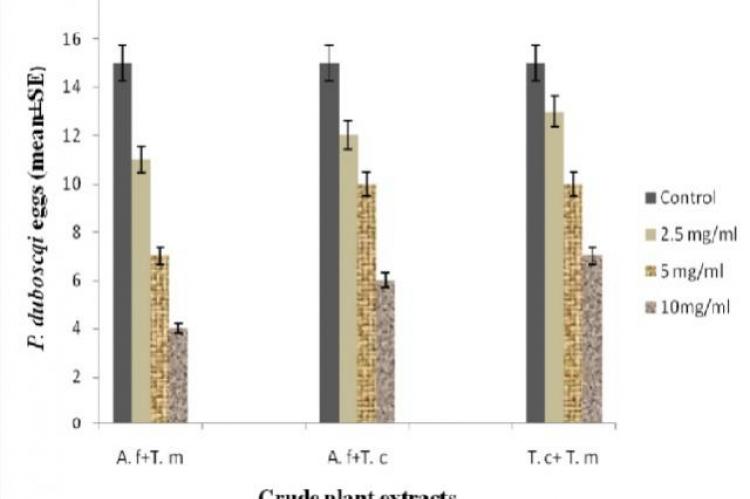This study was carried out to find out the effects of Tarchonanthus Camphoratus, Acalypha fruticosa and Tagetes minuta crude extracts on the fertility of P. duboscqi. The extracts were prepared from the dried aerial parts of T. camphoratus, A. fruticosa, and T. minuta. Ten female sand flies were aspirated into vials where they were fed on a mixture of the plant extracts and sucrose solution prepared in a ratio of 1:1. These crude plant extracts were found to reduce the fecundity of P. duboscqi significantly (P< 0.05). The extracts were found to reduce the fecundity of P. duboscqi by 73% (A. fruticosa), 53% (T. minuta) and 26% (T. camphoratus) (P< 0.05). The higher level of A. fruticosa, T. minuta and T. camphoratus activities would potentially reduce the population of sand flies. This study has provided scientific proof of the effects of these medicinal plants on the vectorial capacity of sand flies.
View:
- PDF (568.68 KB)


